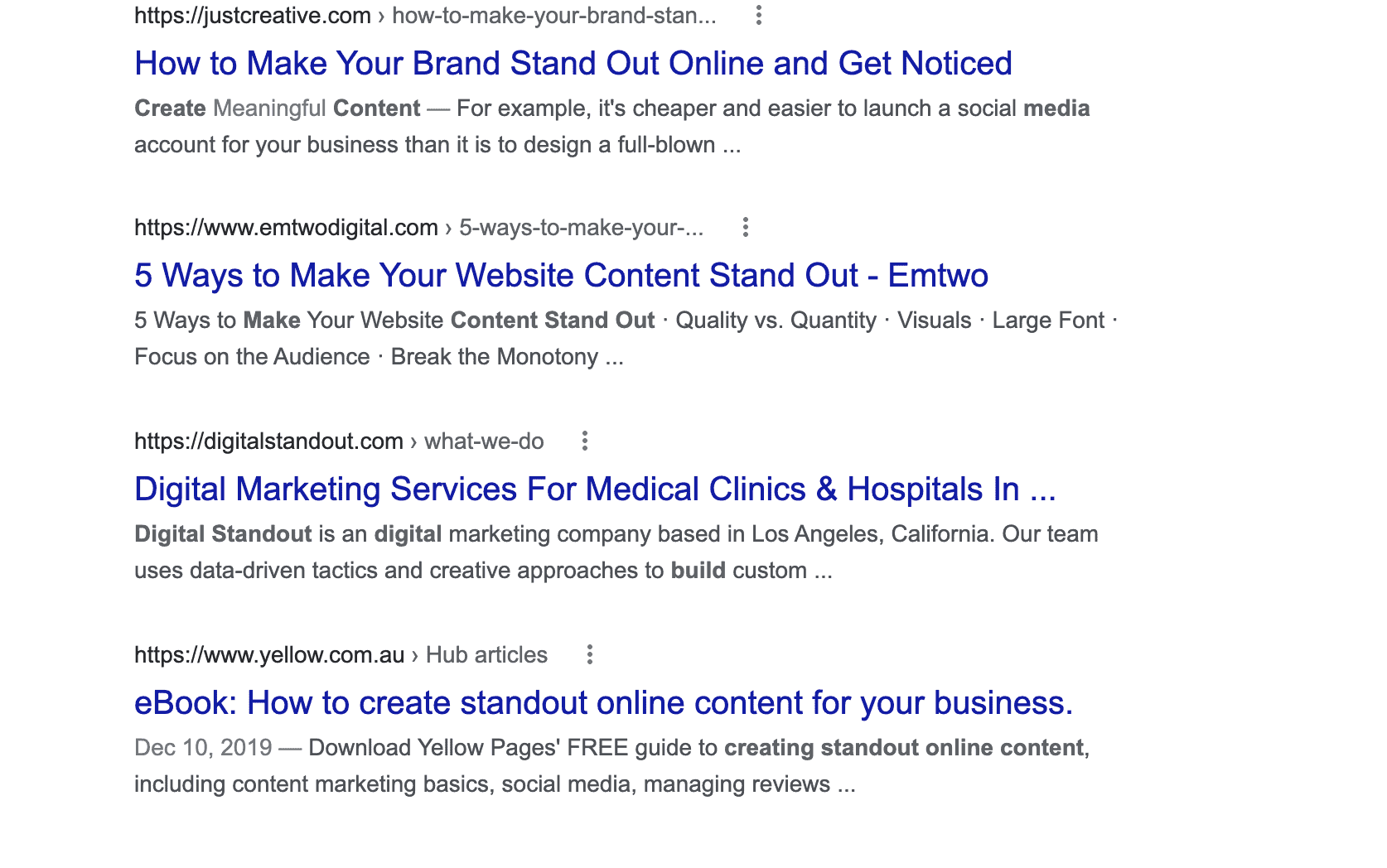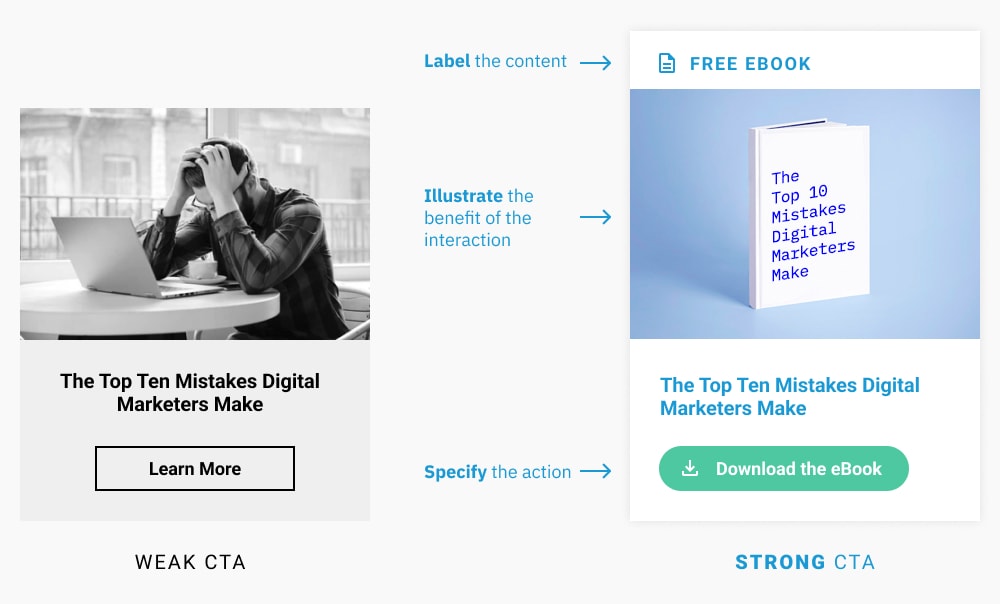There seems to be an article on the internet about every topic under the sun. In some cases there are more than one (probably thousands)! And while that’s sometimes useful to us for our own searches, it also legitimizes worries that your firm may never be discovered in the crowd. And if your prospects never find your content, your efforts to produce it will be useless.
But there is a way to break through the clutter. Hear us out.
While the digital space is undoubtedly packed with content, there’s a huge opportunity for better content. Because much of what’s floating around is generic and therefore forgettable.
When considering your firm’s content, you must always focus on three relatively simple but essential traits. Your content ideas should be novel, specific, and profound.
If your topics meet one, two, or (ideally) all three of these parameters, you have set the stage for stronger, better-performing content. With these three elements in place, you’ll know from the very beginning that what you’re writing about has what it takes to break through the monotonous sea of sameness and connect with your prospects.
Novel, Specific, Profound: How Do They Work?
Newfangled has our own “litmus test,” if you will, for when we ideate content with clients. Each idea must aim to possess these three traits: novelty, specificity, and profundity. Topics that don’t meet these standards are thrown out.
We know that if you start from that truly original space, you’ll move forward with standout ideas. After all, unique content is also memorable content. Our brains are wired to pin memorable content and mentally revisit it over and over. This is a good thing for content marketing. Perhaps the best thing.
So, let’s start with the first tenet of our litmus test: novel.
Your Content Should Be Novel
It is imperative that your audience see your content as fresh and original. You want to share material they aren’t used to seeing every day. That’s a crucial first step toward catching their attention.
We always recommend that you lean into messaging that sets your firm apart and differentiates you from the pack. Write about areas your audience needs help with or wants to learn about, but do it in a way that hasn’t been done before (or has rarely been done). Because as we’ve discussed, if your content is novel, it will be memorable. Readers will associate it with you and your firm. And that is a huge win.
Now, we aren’t saying everything you publish will never have been said before. We already admitted that’s impossible. Instead, you should focus on offering a new perspective, a new angle, or new details that aren’t commonly disclosed.
One of our clients, a higher-ed digital marketing agency, recently identified an issue that their clients constantly struggle with: How can higher education institutions better connect with corporate partners? But even though it’s a constant pain point for their clients, it’s one that, quite honestly, is not being talked about enough. Bingo! By offering this fresh expertise, our client set itself up as true experts in their space. And it all started with a novel idea.
Your Content Should Be Specific
Specificity. You realize you need fresh, different (novel) content topics. But they must also be detailed. Because the more specific your content is, the more novel it will be, and the more it will be remembered and therefore revisited. (Starting to see how these elements build upon each other?)
Specificity helps Google, too. If you can try to match your content copy with user search intent and language, which will make it more specific in nature, your content is more likely to rank well. As more pages on your site rank higher, your visitor count will grow and your entire website will benefit. Over time, your site will be viewed by search engines as a credible authority and reliable source. And who doesn’t want Google to move them to the front of the class?
But it’s not just your main content copy that should be specific. Specificity should be applied across your digital marketing efforts. To your headlines, your CTAs, your ad copy, and so forth.
Imagine if I titled this article about specificity and uniqueness in your content as, “How To Create Standout Digital Content.” That would be a huge waste as there are currently 179,000,000 search results on Google for this phrase and results on the first page all have similarly worded titles.

Competing with that would be difficult, to say the least. But by using the keywords novel, specific, and profound in my headline, I cut to the heart of the article right out of the gate.
And the rule goes beyond organic search. For example, if your promotional email displayed the above generic subject line, chances are it would go straight to trash. You need to pique your reader’s interest with specifics, and where better to do that than in the subject line?
Don’t forget CTAs. Any call-to-action must be distinct. How many of us have seen the same CTAs over and over again? “Click here” or “Download.” What if instead you considered including a CTA that urged, “Download your free white paper about FinTech’s hottest trends”? The audience knows exactly what they are being asked to do.

Your Content Should Be Profound
Profundity is difficult — but it’s vital.
You have to let go of the misconception that you must appeal to everyone. Do not waste your time. I know that’s hard to hear as a CEO or marketer — that not everyone is going to care about your content. In fact, some people may disagree with your content. But guess what? That’s what you want.
Because you should make sure the point of view in your content is your own. And that it’s insightful and forthright. It can even be provocative! Your content isn’t meant to be the most popular opinion out there. It should share your perspective, and you should own that.
The recommendation here is that you put a stake firmly in the ground, carve out your own voice, and give your content a truly distinct and profound point of view.
In turn, your efforts will lead to positive outcomes: specificity in your content and memorability and credibility based on what you’re saying and offering. The more profound your point of view is, the more you will be viewed as an authentic and trustworthy source of information.
You Can Be Different, or You Can Offer More of the Same
One of our own content marketing strategists wrote an article entitled, Your “Secret Sauce” Is Your Firm’s Best Selling Point — Give It Away For Free. This article is a great example of owning a profound point of view. So many of our clients cannot get their arms around the idea of giving away their “secret sauce” because they so often equate it with “giving away the farm.” The article explains the difference between these ideas and stresses how being bold and generous with your expertise will pay off in the long run. This opinion stands out because it’s different from most out there, but the writer owns it and backs it up with logic.
In the wide (wide) world of digital marketing, you can position your firm as an expert by following the three essential traits of content strategy. With the right mixture of novelty, specificity, and profundity, you’ll go from creating content that sits on the proverbial digital shelf to content that stands out. Shoot for content that makes readers squeal, “You get me! You understand my challenges! You can help me!”